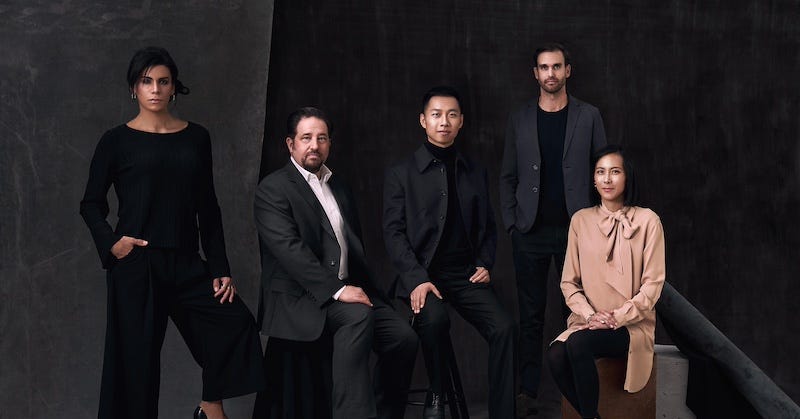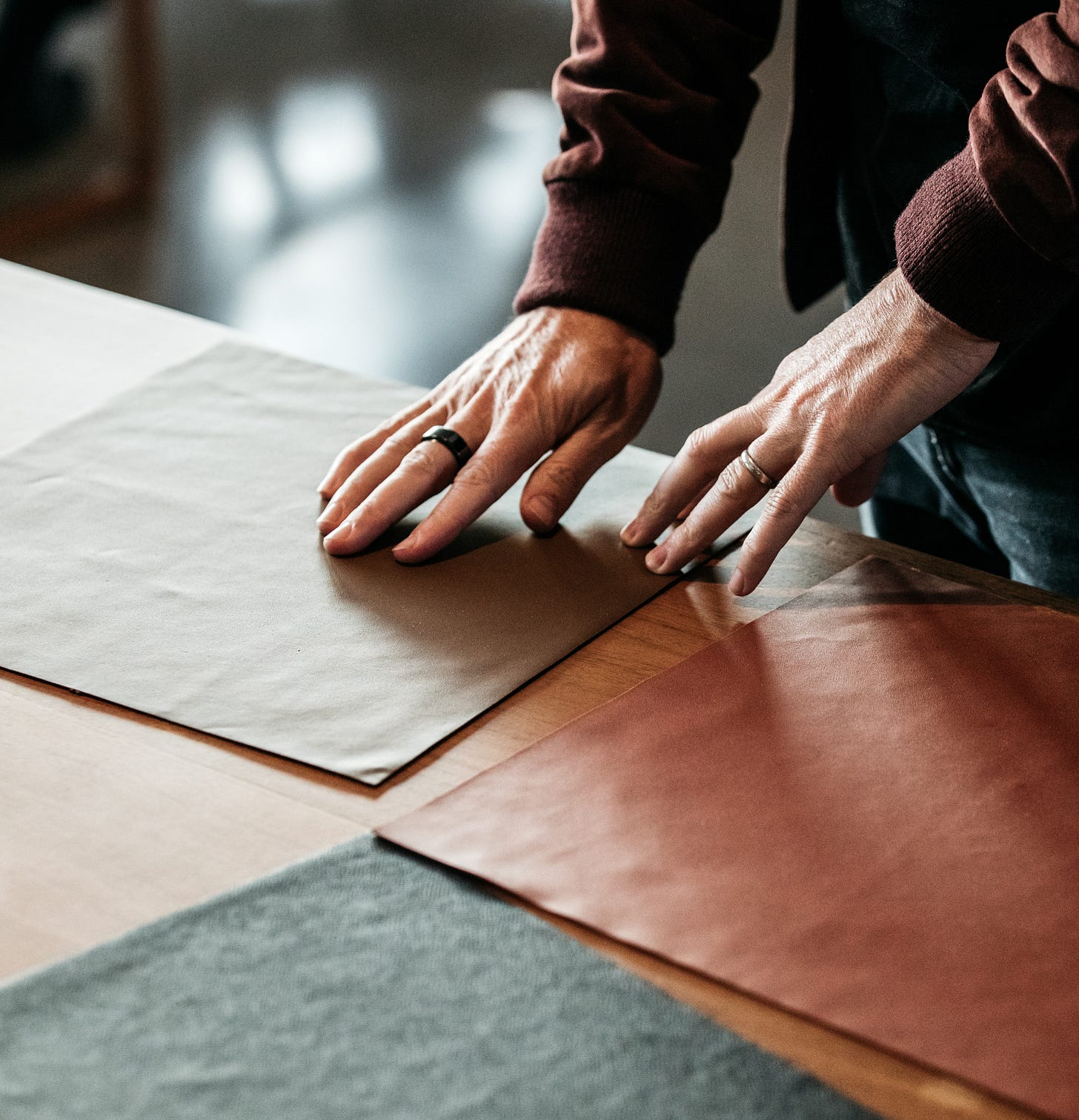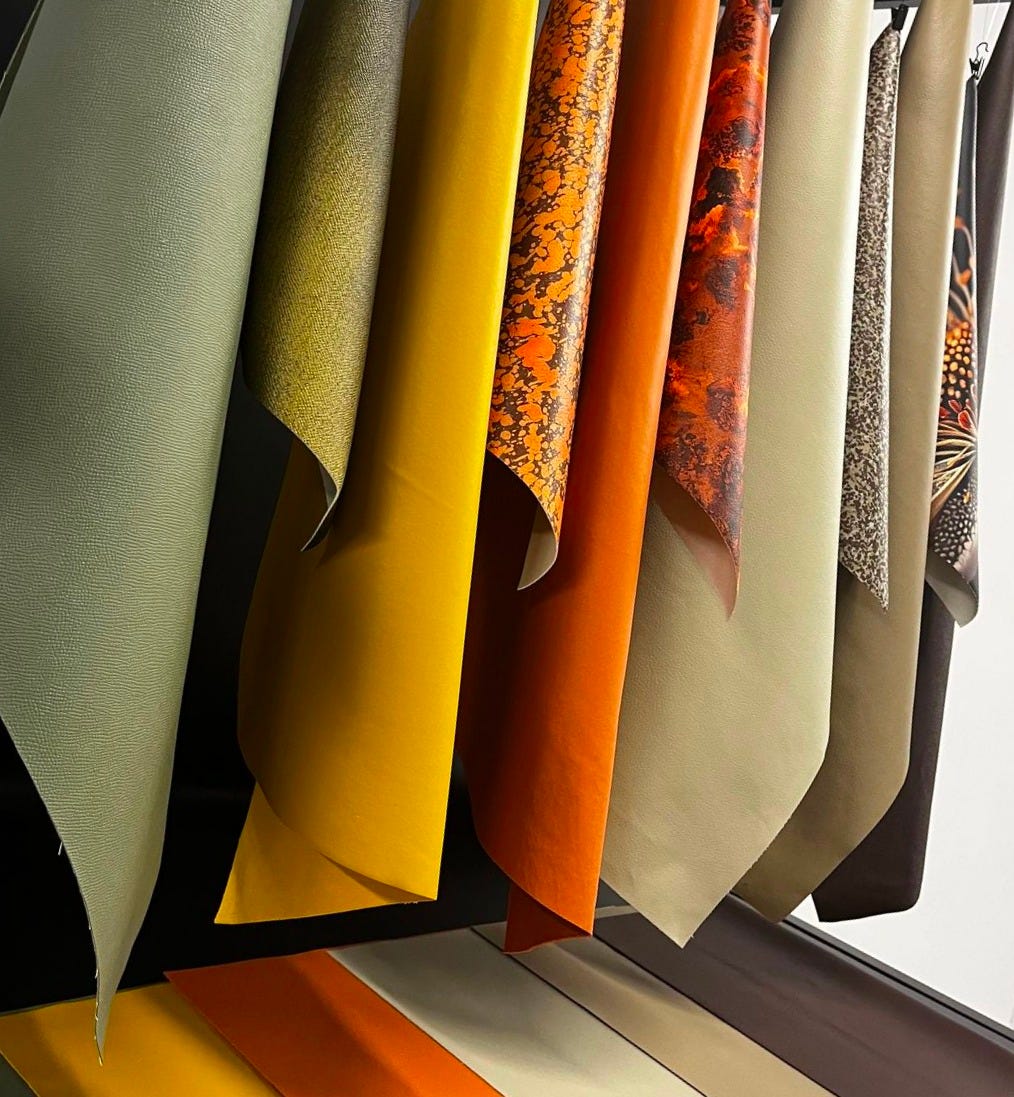Crafting the Future
Yudi Ding sits down with ReGen to discuss his journey founding PACT, technology platform for global manufacturers and brands to produce, retail, and scale biomaterials.
In a world increasingly defined by the balance between what we create and what we consume, the fashion industry sits at a crossroads. Leather, once synonymous with luxury and heritage, now carries questions about its future viability. The materials that shape our clothes, our cars, and the interiors of our homes have stories—stories rooted in tradition and, often, in excess and waste. It’s within this uncertainty that PACT has carved its path.
Holding a PhD in Organic Chemistry from the University of Cambridge and a background in Chemical Engineering from École Polytechnique, Dr Yudi Ding approaches this challenge with the instinctive drive of someone who has studied both the problem and its solutions down to the molecule.
But Yudi knows that creating something revolutionary requires more than great science; it means building a material that doesn’t just match, but exceeds the performance of traditional materials and does so at a cost that opens the door to widespread adoption. True transformation isn’t just about disrupting existing processes—it’s about rethinking how a material can scale meaningfully in the real world.
PACT is not simply a product; it is a platform that redefines how materials are produced, enabling manufacturers and luxury brands to create, retail, and scale biomaterials with the confidence they bring to traditional fabrics. Decoupling textiles from petrochemicals isn’t just ‘sustainable’ – it unlocks possibilities of color, design, and texture that we can’t conceive of with today’s imperfect building blocks. Starting with collagen, PACT’s materials deliver on luxury’s promise—exceptional quality that meets the needs of discerning brands—while being produced more efficiently and at a lower cost.
Yudi’s journey has been built on trust and deep knowledge across the textile value chain, from iconic luxury houses to family-run tanneries steeped in generations of craftsmanship. He knows that to change an industry, you must prove that innovation can be beautiful, reliable, and unwavering in quality.
In a world impatient for solutions, Yudi’s story speaks not only to PACT’s ambition but to the meticulous care that sets it apart.
ReGen: Your journey began with a strong foundation in science. What first inspired you to move from research into the world of materials innovation, and how did that lead to the founding of PACT?
Yudi: At the beginning of my entrepreneurship journey, I wanted to determine where I could make the most impact for the planet. The whole fashion industry contributes 7-10% of global carbon emissions, overwhelmingly from raw materials production, but it’s also evident that it has a present demand for innovative and responsible materials.
When we dove deeper, we found that industrial leather production has the highest impact on the planet by far. The question then became, how do we create a material that captures all of the characteristics that we love about leather, but at the same time reduce the environmental impact when we make it?
That was the beginning of PACT. Being trained as a scientist, a chemist and a chemical engineer, I personally felt that I was uniquely positioned to contribute my knowledge and experience to this problem by transforming collagen protein into a beautiful material.
Early in your journey, what challenges did you face when it came to creating a material that could both match the quality of traditional leather and be produced at scale?
Yudi: Making a small piece of material is not very difficult – the cost is low and the time of producing the material is quick. Yet the biggest challenge right now is how to maintain the consistency and quality of these materials at scale. Even then, there are a lot of great innovative textiles that exist today, but most are unable to be incorporated into infrastructure and supply chains.
Scalability is the biggest challenge in the industry. This is one of PACT’s strengths, and if I were to give any advice to myself four years ago, I would say, focus your energy on researching and developing a process that is appropriate to scale up via manufacturing when you want to enter the market. And with our process, we ensure that scaling up doesn’t compromise cost-efficiency, making our materials more competitive.
The transition from lab-scale innovation to scalable production is often the most challenging step. How did PACT approach this leap to ensure consistency, quality, and cost-competitiveness?
Yudi: One of the biggest lessons we've learned from the industry is the importance of being ready before launching. We’ve seen other startups rush to market without fully developed products, and that can burn bridges with brands. For example, there have been well publicised cases where materials were introduced with great anticipation but faced delays or performance issues that left both investors and brands disappointed. We’re determined to avoid those mistakes. At PACT, we make sure our material's performance and aesthetics are fully proven before we scale and launch, so brands can trust that they’re getting a product ready for their needs.
Our platform is designed to be versatile, which is a huge advantage in a market that’s always changing. Fashion, especially luxury fashion, is seasonal, and while some products carry over, most collections are new every season. This requires materials that are adaptable and can be used across different product lines. And importantly, with PACT’s technology, brands can produce these materials more efficiently and at a lower cost, allowing them to reach broader markets without sacrificing quality.

Partnerships with luxury brands and tanneries have become a cornerstone of PACT's growth. What lessons have you learned from working with these established players, and how have they influenced PACT’s path forward?
Yudi: Engaging with the middle of the supply chain has definitely become a key differentiator for us. A lot of innovation is already happening in the space – and we’ve learned that the mills and tanneries work alongside the rhythm of the fashion cycle. There are runway shows, production and lead times, delivery of samples and design manufacturing. From raw material manufacturing design to final product delivery, it’s a very coordinated industry. As an innovator, we need to fully understand the industry by interrogating every step along the supply chain and determine the needs of each player to easily adopt your technology. These stakeholders also hold a wealth of knowledge on scaling up new materials that they’ve imparted upon us.
Introducing new materials into the fashion industry comes with its own set of challenges, especially when working with established brands and supply partners. Why was it important for PACT to understand and integrate with existing practices, and how has this approach shaped your journey?
Yudi: The reality is, oftentimes a designer doesn’t primarily think of sustainability when they’re assessing a material—they’re looking for materials that can fulfill their creative brief. So to truly succeed in this space, the material must outperform existing materials.
Over the past four years, I have become more aware of the high level of quality in the materials brands use. I’ve had to educate myself on how supply partners operate, and understand what is most important to each player. I’ve learned the significance of touching material and manipulating it—bending, folding, stretching it—to really understand how material functions. Whenever we bring a new material to a brand, the first thing they do is hold it in their hands to assess it close up on feel and aesthetic. The softness and the drape of the material are key—qualities that can be difficult to replicate but are essential for integration into the current supply chain.
Looking ahead, how does PACT plan to expand its platform beyond fashion to ensure it continues to meet industry demands and scale effectively across different sectors?
Yudi: We believe that our material, at scale, will be one of the key players in this space as we can offer a variety of different end-uses to overcome these challenges. This is how Oval, our first material, goes from product to a platform technology – it can be used by tanneries and manufacturers in other industries, not just fashion. Ultimately, it can outperform and provide an exciting alternative to traditional materials with a high carbon impact. We see opportunities to expand into automotive, interiors, and other areas where high-performance, cost-effective materials are needed. If leather is expensive and PVC is a cheap harmful petroleum, PACT’s platform and licensed material is the new innovative product at a mass market price point.
It’s all about learning by doing, and I truly enjoy this part of the process. Understanding the product, understanding the industry—it’s fun for me. In the end, it’s about creating something that resonates on every level: tactile, visual, and emotional. That’s what sets the path forward for PACT and for me as a founder. ⧫
To see more from Yudi and his team, you can visit PACT.earth.





